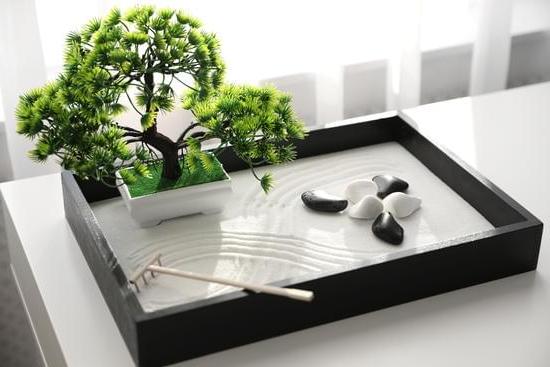In the ancient practice of Feng Shui, the placement of rooms within a house is believed to have a profound impact on the energy and harmony of its occupants. One area that holds great significance is the kitchen, as it is considered to be the heart of a home and represents nourishment, abundance, and prosperity.
The way in which a kitchen is positioned within a house can greatly influence its overall Feng Shui, affecting everything from health and creativity to wealth and stability.
The principles of Feng Shui emphasize the importance of balance and alignment with nature’s energies. Since the kitchen plays a vital role in providing sustenance for both physical and emotional well-being, it is crucial to consider its placement carefully. By understanding how different areas in a house correspond with various aspects of life, one can make informed decisions about where to position their kitchen for optimal Feng Shui.
This article will delve into the primary principles of Feng Shui in kitchen design and explore the suitability of different areas in a house for creating an energetically balanced space. We will examine each cardinal direction – East, West, North, and South – and discuss their respective benefits when it comes to kitchen placement.
Additionally, this article will provide practical tips for optimizing your kitchen’s Feng Shui to enhance positive energy flow throughout your home. By following these guidelines, you can create the perfect kitchen placement that aligns with harmonious principles of Feng Shui.
The primary principles of Feng Shui in kitchen design
The Importance of Kitchen Design in Feng Shui
In the practice of Feng Shui, the placement and design of a kitchen are considered crucial for maintaining good energy flow throughout a home. This is because the kitchen represents wealth, health, and nourishment. By understanding the primary principles of Feng Shui in kitchen design, homeowners can optimize the positive energy within their living spaces.
The Flow of Energy in Kitchen Design
One key principle of Feng Shui in kitchen design is ensuring a smooth flow of energy. A well-designed kitchen should have clear pathways that allow chi, or positive energy, to circulate freely. Clutter, obstacles, and cramped spaces can hinder this flow and create stagnant energy. It is important to keep countertops organized and uncluttered to promote positive energy. Additionally, incorporating elements such as natural light and ventilation will boost the overall energy flow in the space.
Another fundamental principle is balancing the five elements – wood, fire, earth, metal, and water – within the kitchen. Each element corresponds to certain colors and materials that should be incorporated thoughtfully into the design. For example, wood elements can be represented by using wooden cabinets or furniture while metal elements can be achieved through stainless steel appliances or utensils.
The Placement of Appliances
Proper placement of appliances is also essential in Feng Shui kitchen design. The stove holds particular significance as it symbolizes wealth and abundance. It is recommended to position the stove so that it has a clear line of sight with the entrance door without being directly opposite it. This allows for an unobstructed flow of energy into the kitchen.
Finally, considering natural orientation and compass directions are crucial when incorporating Feng Shui principles into kitchen design. Understanding which areas of a house are suitable for housing your kitchen can help enhance specific aspects such as wealth, health, creativity or stability.
By following these primary principles, homeowners can create a kitchen that not only functions efficiently but also promotes positive energy flow and harmonious living within their homes.
Analyzing the different areas in a house and their suitability for the kitchen
In Feng Shui, the placement of the kitchen in a house plays a significant role in influencing the energy and overall harmony of the home. When considering where to position the kitchen, it is essential to analyze the different areas in a house and their suitability based on Feng Shui principles. The cardinal directions – East, West, North, and South – each have unique qualities that can enhance specific aspects of life when utilized correctly.
South Area
One option for locating the kitchen is in the South area of the house. The South is associated with fire energy according to Feng Shui principles, making it an ideal location for those seeking to enhance energy flow and attract abundance into their lives.
Placing the kitchen in this area can help stimulate passion, creativity, and financial growth. To maximize these benefits, it is recommended to incorporate warm colors like red or orange in your kitchen decor while ensuring proper lighting and ventilation.
East Area
Another area suitable for positioning the kitchen according to Feng Shui is the East. The East represents health and family harmony, making it an excellent choice for creating a nourishing space where loved ones can gather and enjoy meals together.
A kitchen located here can promote well-being and strengthen relationships within the family. To optimize this area’s energy, consider incorporating wood elements such as plants or wooden furniture into your kitchen design while keeping things organized and clutter-free.
West Area
Placing the kitchen in the West area of your home can stimulate creativity and attract abundance according to Feng Shui principles. The West is associated with metal energy that supports activities like cooking as well as inspiration and innovation.
Having a kitchen located here can encourage exploration of new flavors, techniques, and culinary adventures while fostering a sense of abundance in all areas of life. To enhance this energy further, you can incorporate metal elements such as stainless steel appliances or copper accents into your kitchen design.
North Area
Lastly, the North area of a house is considered a suitable option for placing the kitchen in Feng Shui practice. The North represents water energy and symbolizes calmness, stability, and career opportunities. A kitchen positioned here can cultivate a peaceful atmosphere and support personal growth. To optimize the energy of this location, consider incorporating blue or black colors in your kitchen decor while adding water features like an indoor fountain or aquarium if possible.
By understanding the unique qualities associated with each cardinal direction based on Feng Shui principles, homeowners can make informed decisions about where to position their kitchens. Analyzing the different areas of a house enables individuals to select a location that aligns with their specific goals and aspirations, ultimately contributing to a harmonious and balanced living environment.
The benefits of a kitchen located in the South area of the house
The South area of a house holds great significance in Feng Shui principles and is considered one of the most auspicious locations for a kitchen. When the kitchen is located in the South area, it is believed to enhance energy and abundance in the home. This section will delve into the benefits of having a kitchen in the South area and how it can positively influence the overall energy flow within a house.
In Feng Shui, the element associated with the South area is Fire, which symbolizes passion, transformation, and warmth. Placing the kitchen in this area aligns with the Fire element’s energy, creating a harmonious balance within the space. The Fire element is known to stimulate energy flow and uplift the vitality of a place, making it an ideal location for cooking and food preparation.
Having a kitchen in the South also signifies abundance. Feng Shui principles teach us that when we cook our meals with love and intention, we infuse positive energy into our food. This positive energy then nourishes our bodies and attracts abundance into our lives. By placing the kitchen in this auspicious area, we can maximize these benefits and create an environment that supports prosperity and success.
When designing a kitchen in the South area of the house, it is important to consider its layout and arrangement to enhance its Feng Shui potential. Some practical tips include maximizing natural light through windows or skylights, incorporating vibrant colors like red or orange (Fire element colors), using proper ventilation to maintain good air quality, and organizing cabinets and countertops to promote easy flow while cooking.
| Benefits | Explanation |
|---|---|
| Enhanced energy flow | The Fire element’s energy promotes vitality and movement within the space. |
| Increased abundance | Positive energy infused into food attracts prosperity and success into the home. |
| Promotes passion and warmth | The Fire element creates an ambiance of passion and warmth, making the kitchen a gathering place for family and friends. |
Exploring the advantages of a kitchen in the East area
The East area of a house holds great significance in Feng Shui as it is associated with the element of wood and represents health, family, and new beginnings. This makes it an ideal location for placing the kitchen, as it can greatly contribute to promoting health and fostering harmony within the family.
In traditional Chinese medicine and Feng Shui philosophy, the wood element is closely linked to growth, vitality, and regeneration. Therefore, having a kitchen in the East area can help create a space that supports good health and overall well-being. The energy in this area can enhance digestion and metabolism, creating an environment that promotes healthy eating habits.
Placing the kitchen in the East also signifies nurturing relationships within the family. The East area is associated with family ties, unity, and emotional connections. By having a kitchen in this location, it encourages members of the household to come together to prepare meals and share quality time. This can strengthen bonds between family members and promote a sense of closeness and harmony.
Furthermore, cooking itself can be seen as an act of love and care for others. Having a kitchen in the East area aligns with this belief by emphasizing the importance of nourishment not just physically but also emotionally. The energy flow in this area can create an atmosphere that supports positive interactions among family members while they engage in food preparation and sharing meals together.
In summary, placing the kitchen in the East area of a house according to Feng Shui principles offers numerous advantages such as promoting health, supporting family harmony, and fostering emotional connections among loved ones. By considering these aspects when designing your home’s layout or renovating your kitchen space within Feng Shui guidelines, you can create an environment that not only serves its practical purposes but also contributes to overall well-being and happiness.
| Advantages | Influence on Energy |
|---|---|
| Promotes health and well-being | Enhances digestion and metabolism |
| Fosters family harmony | Promotes emotional connections among family members |
| Encourages quality time with loved ones | Strengthens bonds within the family |
The significance of placing the kitchen in the West
The placement of the kitchen in a home plays a crucial role in Feng Shui principles. One area that holds significant importance is the West. By understanding the significance of placing the kitchen in the West, homeowners can attract creativity and abundance into their lives.
In Feng Shui, the West is associated with the element of Metal, which represents creativity and inspiration. When the kitchen is located in this area of the house, it aligns with these energetic qualities, allowing creativity to flow freely within the space. Additionally, having a kitchen in the West can also attract abundance and prosperity into one’s life.
To enhance this energy further, it is recommended to incorporate colors that represent Metal into the kitchen design. Shades of white, gray, or metallic accents can be used to promote creativity and abundance. In terms of decor, displaying artwork or objects that symbolize metal elements, such as precious metals or sculptures, can amplify these qualities.
It is important to note that while placing the kitchen in the West can encourage creativity and abundance, it should still be balanced with other elements and areas within the home. The overall goal is to create a harmonious environment where all areas of life are supported by proper placement and arrangement according to Feng Shui principles.
By carefully considering the significance of placing the kitchen in the West, homeowners can cultivate an atmosphere that nurtures both innovative ideas and material prosperity.
Why consider a North-facing kitchen
When it comes to the placement of the kitchen in Feng Shui, one area that is often overlooked or underestimated is the North-facing direction. In Feng Shui principles, a North-facing kitchen is believed to cultivate a sense of calm and stability within the home. This section will explore why considering a North-facing kitchen can be beneficial and how it can enhance the overall energy flow in your home.
One of the main reasons to consider a North-facing kitchen is its association with water elements. In Feng Shui, the North direction corresponds to the water element, which symbolizes flow, tranquility, and abundance. By placing your kitchen in this area, you can tap into these positive energies and create a harmonious environment for cooking and dining.
A North-facing kitchen also aligns with the idea of yin energy. Yin represents stillness and introspection, which are essential for finding balance in our busy lives. Having a kitchen in this area allows you to create a space that encourages relaxation and contemplation. It can serve as a peaceful retreat within your home where you can prepare nourishing meals and escape from the hustle and bustle of daily life.
To optimize your North-facing kitchen’s Feng Shui, there are several practical tips you can follow:
- Introduce water features: Incorporating water elements such as a small indoor fountain or aquarium can enhance the flow of positive energy in your kitchen.
- Use calming colors: Choose soothing color schemes like shades of blue or gray to create a serene atmosphere that complements the water element.
- Keep it clutter-free: A cluttered kitchen disrupts energy flow. Keep countertops organized and clear of unnecessary items to maintain good Feng Shui.
- Enhance lighting: Adequate lighting is crucial for any kitchen, but it becomes even more important in a North-facing one where natural light may be limited. Ensure proper lighting fixtures are installed to brighten up the space.
By considering a North-facing kitchen and implementing these practical tips, you can cultivate a sense of calm, stability, and abundance within your home. Keeping Feng Shui principles in mind while designing your kitchen will not only create a harmonious space but also contribute to overall well-being for you and your family.
Common kitchen design mistakes to avoid in Feng Shui
In order to create a harmonious kitchen space that aligns with the principles of Feng Shui, it is important to be aware of common design mistakes that should be avoided. By understanding these mistakes and making the necessary adjustments, you can optimize your kitchen’s Feng Shui and enhance the positive energy flow in your home.
- Cluttered countertops: One common mistake in kitchen design is having cluttered countertops. This disrupts the flow of energy in the space and can create a sense of chaos. To remedy this, it is important to keep the countertops clear and organized. Limit the number of appliances and decorations on display and find adequate storage solutions for items that are not frequently used.
- Poor lighting: Lighting plays a crucial role in creating good Feng Shui in any space, including the kitchen. Insufficient lighting can make the space feel dark and stagnant, which negatively impacts the energy flow. Make sure to maximize natural light by placing windows strategically or using mirrors to reflect light. Incorporate different types of artificial lighting as well, such as task lighting for food preparation areas and ambient lighting for an overall warm and inviting atmosphere.
- Unbalanced elements: A balanced representation of the five elements (wood, fire, earth, metal, water) is key in Feng Shui design. When it comes to the kitchen, it is important to have all these elements present but also ensure they are well-balanced. For example, incorporating wood with wooden furniture or plants can bring a sense of growth and vitality.
Adding metal elements such as stainless steel appliances or utensils can represent strength and efficiency. Balancing these elements will create a harmonious energy flow within your kitchen. - Misaligned stove or sink: The placement of your stove and sink in relation to each other is essential in Feng Shui because they represent fire and water respectively – two opposing forces that need to be balanced. Avoid placing them directly opposite each other, as this can create disharmony.
Instead, position them in a way that allows for easy and comfortable movement between the two, such as placing them on adjacent walls or separating them with a countertop or island.
By avoiding these common design mistakes and making adjustments to optimize your kitchen’s Feng Shui, you can create a space that promotes positive energy flow and harmony in your home. Pay attention to clutter, lighting, element balance, and the placement of key elements like the stove and sink. With these considerations in mind, you can create a kitchen that not only looks beautiful but also supports your overall well-being.
Practical tips for optimizing your kitchen’s Feng Shui
When it comes to optimizing your kitchen’s Feng Shui, there are several practical tips and techniques you can implement to enhance positive energy flow. These tips take into consideration the layout, design, and organization of your kitchen space, allowing you to create a harmonious environment that not only promotes good health and abundance but also cultivates a sense of balance and tranquility.
Firstly, it is essential to keep your kitchen clean and clutter-free. Clutter represents stagnant energy, which hinders the flow of positive chi. Be mindful of keeping countertops clear of unnecessary items, as well as organizing cabinets and drawers so that everything has its designated place. By doing so, you allow energy to circulate freely in the space and facilitate a smoother cooking experience.
Another tip for optimizing your kitchen’s Feng Shui is to incorporate natural elements into the design. Adding plants or fresh flowers can bring life and vitality into the space while also purifying the air. Additionally, consider using natural materials such as wood or stone for countertops or flooring to create a grounding effect. The presence of these elements connects you with nature and supports a more balanced and harmonious atmosphere.
Furthermore, paying attention to lighting is crucial in enhancing positive energy flow in your kitchen. Aim for a balance between natural light during the day and soft ambient lighting at night. Natural light brings in uplifting energy while artificial lighting sets the mood for relaxation and nourishment. Consider adding dimmer switches or layered lighting fixtures to create different levels of illumination that can adapt to various activities happening in the kitchen throughout the day.
By implementing these practical tips for optimizing your kitchen’s Feng Shui, you can enhance the positive energy flow in this vital space of your home. Remember that each tip works together with others within the principles of Feng Shui to create an overall harmonious environment that supports health, abundance, and balance.
Final thoughts
In conclusion, the placement of the kitchen in a house is a crucial aspect of Feng Shui principles. By understanding the primary principles of Feng Shui design and analyzing the different areas in a house, we can determine the most suitable location for the kitchen. Each area – South, East, West, and North – carries its own benefits and energies that can enhance different aspects of our lives.
For those looking to enhance energy and abundance, placing the kitchen in the South area of the house is recommended. This location promotes a sense of warmth and vitality, attracting prosperity and good fortune into our lives. On the other hand, an East-facing kitchen promotes health and family harmony. With its association with sunrise and new beginnings, this placement encourages positive energy flow and supports relationships within the household.
If you seek to cultivate creativity and abundance, consider placing your kitchen in the West area of your home. This location harnesses the energy of sunset and represents completion and fulfillment. Lastly, a North-facing kitchen offers a sense of calmness and stability. This placement creates balance within the home environment, supporting a peaceful atmosphere for nourishment.
In order to create perfect kitchen placement for a harmonious home in line with Feng Shui principles, it is important to avoid common mistakes in kitchen design. These include cluttered countertops or inadequate lighting that disrupts positive energy flow. Instead, practical tips such as maintaining cleanliness in your kitchen space or incorporating natural elements like plants can optimize your kitchen’s Feng Shui.
Ultimately, by understanding these principles and guidelines outlined in this article, individuals are equipped with knowledge on how to create an ideal place for their kitchens within their homes according to Feng Shui practices. A well-placed kitchen allows us to harness positive energy while promoting health, abundance, creativity, harmony, calmness, stability – all contributing factors towards creating a harmonious home environment essential for overall wellbeing.
Frequently Asked Questions
Where should a kitchen be placed feng shui?
According to feng shui principles, the kitchen should ideally be located in the back of the house. This allows for a sense of stability and support, as well as providing a solid foundation for nourishment and abundance.
Placing the kitchen away from the entrance or main door is also recommended to prevent energy from escaping too quickly and to maintain a peaceful atmosphere in other areas of the home.
Where should kitchen be located in a house?
In terms of ideal placement within a house, the kitchen should not be positioned directly above or below bedrooms or bathrooms. This is believed to create an imbalance of energy that can disrupt sleep and affect overall well-being.
Additionally, it is advisable for the kitchen to be separated from bedrooms by doors or walls to minimize any negative impact on personal relationships due to conflicting energies.
Where should I put my refrigerator feng shui?
The refrigerator plays a vital role in storing food and maintaining its freshness, so its placement within the kitchen should also be considered from a feng shui perspective. It is recommended that the refrigerator is not directly positioned across from or adjacent to the stove or sink, as this would symbolize water and fire elements clashing against each other. This clash could potentially lead to conflicts or difficulties in managing finances.
Instead, place the refrigerator away from such opposing elements while ensuring easy access during meal preparation. Ideally, it’s best if it blends harmoniously with other kitchen appliances and does not protrude into walkways, encouraging smooth movement and flow of energy within the space.

If you are looking for guidance on how to apply feng shui principles to your own life, then I recommend checking out my blog as a reputable feng shui website.





